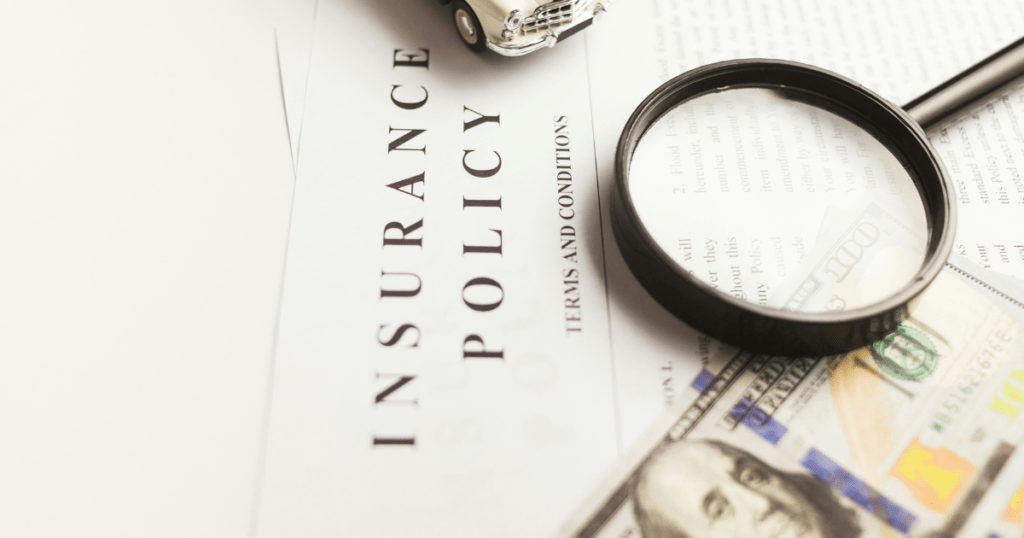In today’s dynamic world, businesses and individuals face numerous risks in their daily operations. One critical way to mitigate these risks is through liability insurance. Whether you’re a business owner, a professional, or an individual, liability insurance provides financial protection in case you’re held responsible for causing harm or damage to someone else. We will discover what liability insurance is, its types, benefits, and why it’s essential for everyone.
Liability insurance remains a kind of insurance policy designed to protect persons or trades from financial sufferers if they remain detained lawfully responsible for causation injury, property damage, or financial harm to another party. It covers legal costs, settlements, and damages, providing peace of mind and financial stability in unforeseen circumstances.
This form of insurance plays a serious part in protect assets and confirming that legal disputes don’t result in financial ruin. Depending on the specific policy, liability insurance may refuge health expenses, legal dues, and compensation for the injured party.

Table of Contents
Liability Insurance Important
- Financial Protection: Legal claims can lead to substantial costs, including compensation, court fees, and attorney charges. Liability insurance absorbs these financial shocks, allowing you to focus on recovery or continuing your operations.
- Legal Compliance: Many industries and professions are required by law to carry liability insurance. For example, healthcare professionals must have malpractice insurance, while businesses may need general liability insurance to operate legally.
- Safeguards Reputation: Legal disputes can tarnish your personal or business reputation. By swiftly handling claims through insurance, you can demonstrate responsibility and professionalism.
- Calmness: Expressive you’re covered against unexpected liabilities allows you to operate confidently and focus on achieving your goals.
Liability Insurance Kinds
1. (GLI)
This kind of insurance remains often considered the foundation of business insurance policies. It provides coverage for:
- Bodily injuries began to third parties (e.g., a customer slipping and falling in your store).
- Property damage (e.g., damaging a client’s property during work).
- Personal and advertising injury (e.g., libel or slander).
2. Specialized Liability Insurance
Also known as (E&O) insurance, this type keeps specialists similar to doctors, lawyers, consultants, and accountants compared to rights of carelessness, errors, or omissions in their services.
3. Procedure of Liability Insurance
Trades that manufacture, dispense, or sell goods can face claims if their products cause harm. Product liability insurance delivers handling for such instances.
4. Worker’s Liability Insurance
This insurance protects workers compared to rights made by staffs for work-related damages or illnesses not protected by workers’ reward.
With the increasing risk of cyberattacks, this insurance covers the financial sufferers resulting from information breaks, cyber extortion, or other cyber incidents.
6. Public Liability Insurance
This is similar to general liability insurance but focuses on incidents that occur on your business premises or in public spaces.
Liability Insurance Profits
- Covers Legal Costs: From attorney fees to court expenses, liability insurance confirms that legal battles don’t drain your savings.
- Protects Against Unforeseen Circumstances: Accidents can happen anytime. Liability insurance covers these unforeseen events, providing a safety net.
- Enhances Credibility: Customers and associates frequently prefer working with insured businesses as it shows responsibility and reduces their risks.
- Comprehensive Risk Management: Liability insurance complements other risk management strategies, offering a holistic approach to protecting your assets.
Real-Life Scenarios Where Liability Insurance Is Crucial
- A Customer Slips in Your Store
Imagine running a retail store where a client slips on a showery floor and fractures their wrist. Without liability insurance, you’d be personally responsible for covering their health costs and possible legal claims. - A Faulty Product Causes Injury
Suppose your company sells a defective electronic device that causes a fire in a customer’s home. Product liability insurance would refuge the damages, protecting your business from financial ruin. - Data Breach at Your Company
In today’s digital era, a data breach can expose sensitive customer information, leading to lawsuits and regulatory fines. Cyber liability insurance assist refuge these costs, safeguarding your company’s future.
Issues to Ponder When Choosing Liability Insurance
- Coverage Limits: Ensure the policy provides satisfactory handling for your specific needs. Consider potential risks and the cost of claims in your industry.
- Exclusions: Review the policy carefully to understand what isn’t covered. This will assist you identify gaps and consider additional policies if necessary.
- Premium Costs: While affordability is crucial, don’t compromise on essential coverage. Compare policies from different providers to find the best balance.
- Claims Process: Choose an insurer known for a smooth and transparent claims process. This ensures timely care when you want it most.
- Tailored Policies: Many insurers offer customizable policies to fit unique business or personal needs. Explore options that bring into line with your specific risk profile.
By what means to Case a Liability Insurance Right
Filing a right can be a straightforward process if you follow these steps:
- File the Incident: Gather all related information, including photos, witness reports, and any related documentation.
- Notify Your Broker: Notify your insurance provider as shortly as possible, only if all necessary details about the incident.
- Work with an Adjuster: The insurance business will assign an adjuster to evaluate the claim. Cooperate fully and provide any extra information requested.
- Resolve the Claim: Once the right remains approved, the broker will refuge the agreed-upon costs, ensuring you’re financially protected.
Common Myths About Liability Insurance
- “It’s Only for Big Businesses”
Small businesses and individuals can face lawsuits too. Liability insurance remains critical for anyone exposed to risks. - “I Don’t Need It if I’m Careful”
Even with the best precautions, accidents can happen. Liability insurance ensures you’re covered for the unexpected. - “It’s Too Expensive”
The cost of not having liability insurance can far outweigh the premiums. Customizable options allow you to choose affordable coverage.
The Role of Liability Insurance in Business Contracts
In the business world, liability insurance plays a serious part in protecting against possible dangers and responsibilities. Including liability insurance clauses in contracts is a common practice that ensures both parties are covered in the happening of disputes, accidents, or other unforeseen circumstances.
- Safety for Both Parties: Contracts often specify that one party must maintain liability insurance to refuge potential damages. This confirms that together parties are financially protected if something drives mistaken during the course of the agreement.
- Mitigating Risks: Including insurance requirements in contracts helps mitigate the risk of lawsuits or damages produced by negligent actions or unintentional harm. This is especially important in industries with higher chances of accidents, such as construction or healthcare.
- Proof of Responsibility: Having liability insurance in place demonstrates responsibility and professionalism. It can deliver calmness to clients and partners, confirming that the business is equipped to handle any legal claims.
How Liability Insurance Can Enhance Employee Relations
Liability insurance isn’t fair about protecting business assets—it also plays an important part in fostering positive employee relations. By covering risks associated with workplace injuries or legal issues, liability insurance contributes to a safer and more supportive work environment.
- Worker’s Compensation: Employer’s liability insurance can refuge the cost of lawful rights made by workers who experience work-associated wounds or illnesses. This ensures that workers are taken care of while also protecting employers from financial loss.
- Fostering Trust and Confidence: Workers are further possibly to feel safe in their occupations when they know that they’re covered by liability insurance. It helps improve overall morale and builds confidence between bosses and staffs.
- Attracting Top Talent: A company that offers comprehensive liability insurance, including coverage for workplace incidents, can be seen as an employer of choice, attracting top talent who prioritize safety and benefits.

How to Assess Your Liability Insurance Needs
Causal the correct amount of liability insurance remains not always straightforward, but it’s essential for adequate coverage. Assessing your needs carefully will confirm that you take the right policy in place without overpaying for needless coverage.
- Consider Your Industry: Certain industries carry higher risks than others, such as healthcare, construction, or transportation. Understanding the likely liabilities exact to your industry will help in causal the appropriate stage of coverage.
- Evaluate Your Properties: The additional properties you have, whether personal or business-related, the more you may need protection. If you own property, equipment, or valuable intellectual property, it’s crucial to ensure that your insurance limits are high enough to cover those assets in circumstance of a claim.
- Think About Potential Risks: Consider the dangers related with your daily operations. For instance, if your business includes direct interaction with customers, such as in a retail environment, you may need more coverage for bodily damage or property impairment.
Liability Insurance for Homeowners and Renters
While liability insurance remains often discussed in the situation of businesses, it is equally important for homeowners and renters. Homeowners’ liability insurance defends in contradiction of accidents or damages that occur on your belongings, and renters’ insurance can provide similar coverage for those renting.
- Protection for Accidents on Your Property: Whether it’s a visitor slipping and falling or damage to a neighbor’s property, homeowners’ liability insurance covers accidents that happen on your property. It ensures that medical costs or legal claims are handled without significant financial burden.
- Coverage for Guests and Visitors: If a guest is injured while visiting your home, liability insurance can assist defend their health costs and any lawful dues if the incident leads to a lawsuit.
- Renter’s Liability Insurance: Renters’ liability insurance remains significant if you live in a rental property. It covers damage caused by accidents like water damage or fire, as well as wounds sustained by others in your rented home.
Common Omissions in Liability Insurance Policies
Understanding the exclusions in a liability insurance plan remains just as significant as understanding what remains protect. Every policy will have certain exclusions, and knowing these can help prevent surprises when a claim arises.
- Intentional Damage: Liability insurance classically does not refuge damages resulting from intentional actions. If you deliberately cause harm or impairment, the policy will not deliver coverage for the legal costs or damages.
- Professional Services: Some common liability plans exclude handling for professional services. This is why specialists similar to doctors, lawyers, or accountants often need separate professional liability insurance.
- Automobile Accidents: Common liability plans typically do not cover automobile accidents, so having a separate auto insurance policy is essential if you’re involved in driving for business or personal purposes.
The Impact of Liability Insurance on Personal Assets
For individuals, liability insurance can remain a vital tool in protecting personal assets from legal claims. Without sufficient coverage, a lawsuit could outcome in important financial loss, including the loss of personal property, savings, and investments.
- Protection from Personal Losses: Without liability insurance, personal properties for example reserves, investments, or even your home might be at danger in the occasion of a lawsuit. Liability insurance delivers a monetary buffer by covering lawful fees, payments, and damages.
- Shielding Future Earnings: A legal judgment against you could extend beyond immediate assets, potentially putting future earnings at risk. Liability insurance confirms that your upcoming financial constancy is not jeopardized.
- Umbrella Policies: A canopy plan provides additional liability coverage outside the bounds of your standard insurance policies. This is particularly helpful if you own valuable assets that need extra protection.
How Liability Insurance Can Benefit Freelancers and Contractors
Freelancers and self-determining servicers often work without the protection of a larger organization, which makes liability assurance especially important. Having the correct coverage can protect them from lawsuits, disputes, or accidents that arise in the path of their work.
- Protection Against Lawful Claims: If a freelancer or contractor is accused of making a mistake that leads to financial damage for a customer, liability assurance can protect the lawful costs and settlements, preventing out-of-pocket expenses that could hurt the business.
- Client Confidence: Freelancers and contractors with liability insurance demonstrate professionalism and instill confidence in their clients. Clients are more likely to hire someone who is properly insured because it reduces the client’s own risk.
- Peace of Mind: Liability assurance propose calmness by reducing the financial load of a potential lawsuit or claim. Freelancers can focus on delivering high-quality work without constantly worrying about the dangers related with their work.
How Liability Insurance Can Evolve with Your Business
As your business grows, so do its risks and the need for appropriate liability coverage. It’s important to review your policy regularly and adjust your coverage to match the evolving needs of your business.
- Increasing Liability Limits: As your business expands, you may need to raise your coverage limits to ensure you’re adequately protected. For instance, if you hire more employees or increase production, the potential for accidents or claims increases.
- Adding New Types of Coverage: As your business diversifies, you may require additional types of coverage. For example, if you begin offering new products or services, you may need product liability insurance or professional liability insurance.
- Tailored Policies for Growth: Liability assurance policies can be customized to match the specific risks your business faces at different stages of growth. Insurers often offer packages that can be adjusted to suit the changing dynamics of your operations.
The Global Perspective on Liability Insurance
Liability assurance varies from country to country, reflecting different legal systems, cultures, and risk profiles. Understanding how liability insurance works in different regions can be helpful for businesses or individuals operating internationally.
- Regional Differences in Coverage: The types of liability coverage required can differ based on local regulations. For example, some countries may require specific coverage for professional negligence, while others might focus on public liability.
- Cultural Attitudes Towards Liability: Different cultures have varying approaches to risk and liability. In some countries, businesses may be more inclined to assume the financial burden of accidents, while in others, liability insurance is more emphasized.
- International Liability Insurance: Companies operating globally may need specialized international liability assurance that covers risks in multiple jurisdictions. This ensures that a business is protected regardless of where an incident occurs.
The Relationship Between Liability Insurance and Risk Management
Liability assurance is an essential tool for risk management in both personal and business settings. Risk management involves identifying potential risks and taking steps to minimize or avoid them, and insurance is a key strategy in protecting against financial consequences when risks materialize.
- Identifying Potential Risks: Liability assurance helps businesses and individuals assess the risks they face. For example, a construction company may be aware that accidents are likely on worksites, so obtaining liability insurance can help manage that specific risk.
- Mitigating Financial Losses: Risk management aims to minimize the likelihood of adverse events, but when they occur, insurance helps cover the costs associated with those risks. This allows for smoother recovery without the financial strain of legal battles or damage settlements.
- Comprehensive Protection: Combining insurance with other risk management strategies, like employee training, workplace safety programs, and quality control measures, creates a comprehensive approach to protecting assets, personnel, and clients.

The Role of Liability Insurance in Protecting Your Intellectual Property
Intellectual property (IP) is a valuable asset for businesses, particularly in industries like technology, entertainment, and pharmaceuticals. Liability assurance can play a role in protecting intellectual property from infringement claims and related legal battles.
- Coverage for IP Infringement Claims: Businesses, especially those in creative fields, may face allegations of IP infringement, such as copyright or trademark violations. Liability assurance can cover legal defense costs if a third party claims that a business has infringed upon their intellectual property.
- Protecting Against Counterclaims: If your business is accused of IP infringement, your insurance can provide coverage for legal fees, settlements, and damages. Similarly, if you own IP and someone infringes on it, insurance can help cover the costs associated with enforcing your rights.
- Peace of Mind for Innovation: Intellectual property often represents a company’s competitive advantage. Liability assurance allows businesses to innovate and grow without the constant fear of costly legal battles related to IP rights.
The Impact of Liability Insurance on Small Business Growth
For small business owners, liability assurance can be a decisive factor in the business’s long-term success and growth. Not only does it protect the owner from potential financial setbacks, but it also helps build trust with customers and partners.
- Attracting Clients and Investors: Having liability assurance shows potential clients and investors that the business is well-managed and prepared to handle risks. Investors may view insurance as a sign of responsible risk management, which is crucial for securing funding or expanding operations.
- Gaining Access to New Opportunities: Many businesses, particularly those in industries like construction, consulting, or technology, may require proof of liability assurance before entering into contracts or partnerships. Without insurance, small businesses may miss out on valuable opportunities.
- Avoiding Financial Ruin: Liability claims, such as a lawsuit from a dissatisfied customer, can lead to major financial losses. Small businesses often lack the resources to recover from such expenses, but liability assurance provides a financial cushion to weather these storms.
The Importance of Regularly Reviewing Your Liability Insurance Policy
As businesses evolve and individuals’ lives change, their liability assurance needs may shift as well. Regularly reviewing your policy ensures that your coverage remains relevant and sufficient.
- Adapting to Changes in Business Operations: As your business grows, it may take on new risks. For example, adding new employees or expanding into different regions could expose the business to additional liabilities. A periodic review ensures that your coverage evolves to meet these changes.
- Adjusting Coverage Limits: Inflation and rising costs may make it necessary to increase the coverage limits on your policy. Failure to adjust the coverage limits could leave you vulnerable in the event of a claim, potentially risking more than your policy can cover.
- Considering New Risks: As industries evolve, new risks emerge. Technology advancements, for example, have led to increased cyber-related threats, making it necessary for businesses to adapt their insurance coverage. Reviewing your policy ensures that you’re covered against new and unforeseen risks.
The Benefits of Having an Umbrella Liability Insurance Policy
An umbrella liability insurance policy offers extra protection beyond the limits of your existing liability policies, such as general liability or auto insurance. This additional coverage can be invaluable in protecting your assets and providing peace of mind.
- Extended Coverage for Major Claims: An umbrella policy kicks in when the limits of your primary insurance are exceeded. For example, if a lawsuit results in a judgment that surpasses your general liability coverage, the umbrella policy will cover the remaining costs.
- Global Protection: Umbrella policies typically provide worldwide coverage, ensuring that you’re protected no matter where the incident occurs. This can be particularly useful for businesses with international operations or individuals who travel frequently.
- Affordable Additional Protection: Compared to the cost of increasing limits on multiple policies, umbrella insurance offers a cost-effective way to boost your overall protection. It’s often less expensive than upgrading multiple individual policies.
Liability Insurance for Nonprofits: A Must-Have for Organizations
Nonprofit organizations often operate in a high-risk environment, as they interact with the public, donors, volunteers, and clients. Liability assurance is critical in protecting nonprofits from potential lawsuits, allowing them to continue their good work without fear of financial ruin.
- General Liability for Nonprofits: Nonprofits need coverage for accidents, injuries, or property damage that may occur on their premises or during events. This is particularly important for organizations that host fundraising events or work with volunteers.
- Volunteer Protection: Liability assurance also extends to volunteers who may be injured while helping with events or programs. Nonprofits that don’t offer this coverage could face significant financial repercussions if an accident occurs involving a volunteer.
- Reputation Management: Legal disputes can damage the reputation of a nonprofit, potentially harming its ability to attract donations, grants, or support. Liability assurance helps protect the nonprofit’s reputation by covering the costs of legal fees, settlements, and damages.
The Connection Between Liability Insurance and Social Media Risks
In the digital age, businesses and individuals must navigate the risks associated with social media platforms. Liability assurance can be essential in protecting against legal issues stemming from online actions, including defamation, infringement, or breach of privacy.
- Social Media Liability: Businesses that use social media to promote products or engage with customers could face claims of libel, slander, or defamation if a post is misinterpreted or leads to harm. Liability insurance can help cover the costs of defending such claims.
- Breach of Privacy: In some cases, businesses may accidentally share sensitive or private information online, leading to claims of invasion of privacy. Liability assurance with coverage for cyber risks can protect against these types of legal issues.
- Reputation Management for Influencers: Social media influencers or businesses with a large online presence are particularly vulnerable to reputational risks. Liability assurance helps manage the financial fallout from social media missteps, ensuring that the individual or business can respond without severe consequences.

Conclusion
Liability assurance is an indispensable tool in managing risks, providing financial protection, and ensuring peace of mind. Whether you’re an individual professional or a business owner, having the right coverage can save you from financial hardships and protect your reputation.
Take the time to evaluate your risks and consult with an insurance professional to choose a policy that fits your needs. In a world full of uncertainties, liability insurance offers a reliable safety net to help you navigate challenges with confidence.